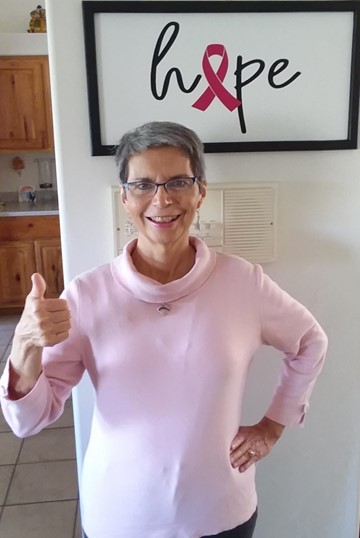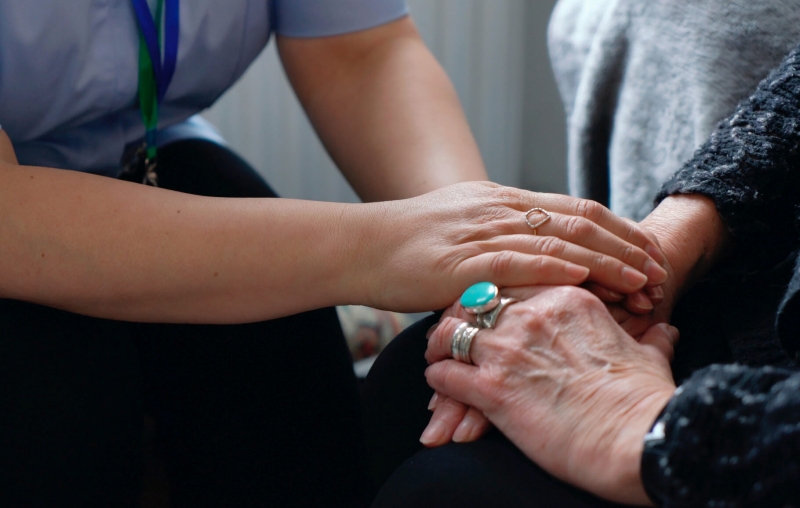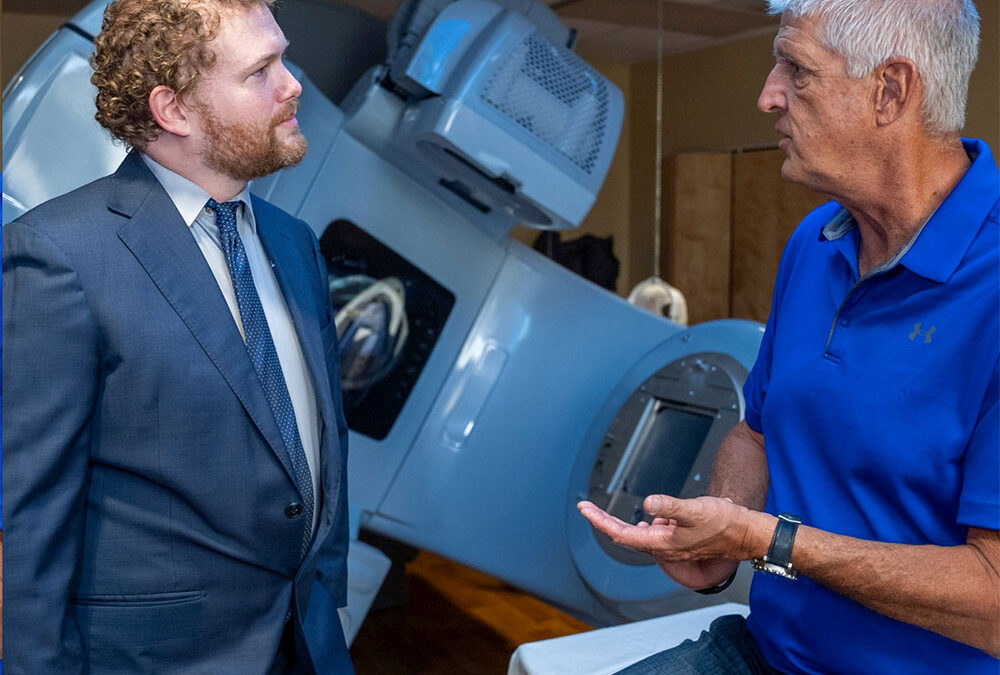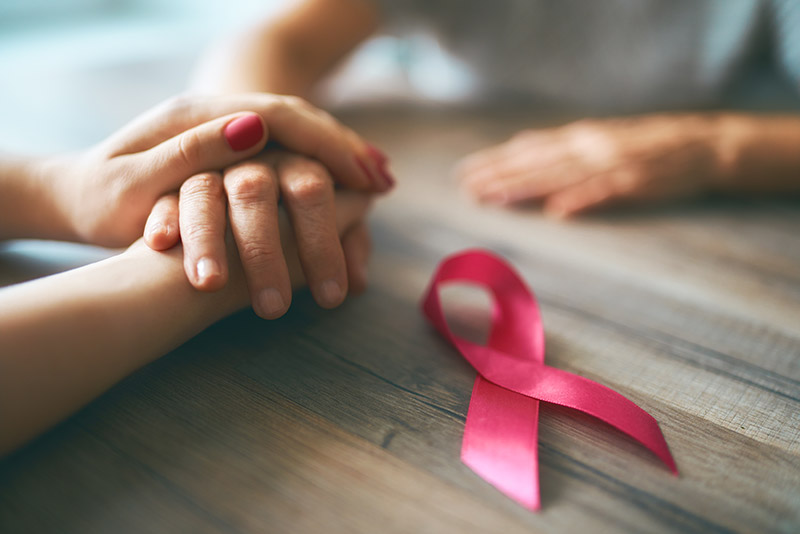Blog

Deborah’s Journey With Stage 4 Metastatic Breast Cancer
At age 35, Deborah Portzer got the news no one wants to hear: breast cancer. Thirty-three years and two recurrences later, her oncologist, Dr. Langerak, gave her better news. Here’s her story. First Diagnosis It’s 1989, and Deborah is working for an aerospace company in California and teaching ballroom dancing. She goes in for her first mammogram at age 35 because of a family history of cancer. The results aren’t good: she has an infiltrating ductal adenocarcinoma in her right breast, hormone receptor ER negative and node negative. During her scheduled lumpectomy, her doctor discovers the...

10 Myths About Genetic Testing
Most people have heard about genetic testing when it comes to cancer risk, but there is a lot of misinformation. Today, we bust the myths about genetic testing and share the facts. MYTH #1: Most Cancers are Genetic FALSE. The majority of patients who develop cancer do not have a genetic predisposition. Genetic inheritance plays a role in approximately five to ten percent of cancers. When it comes to breast cancer in particular, five to ten percent of breast cancer patients have an identified gene, although another ten to 15 percent of patients will have a familial correlation, even though...

Is Your Weight Affecting Your Risk of Developing Cancer?
It’s no secret that being carrying excess pounds can lead to serious health consequences–but did you know that it can also raise your risk for certain types of cancer? National Health and Nutrition Examination Survey (NHANES) showed that in 2011–2014, nearly 70% of U.S. adults aged 20 years or older were overweight or obese. Research shows that higher amounts of body fat can increase the risk for several types of cancer, including liver cancer, kidney cancer, colon cancer, rectal cancer, endometrial cancer, esophageal cancer, pancreatic cancer, gallbladder cancer, thyroid cancer, cervical...

Pay Attention to Your Lymph Nodes for Signs of Cancer
Lymph nodes (also called lymph glands) are an important are part of your immune system. If your lymph nodes become enlarged or feel sensitive to the touch, that is their way of letting you know that your body is fighting an infection. In addition to that, they function as an early warning system for some types of cancer, including lymphoma, leukemia, and breast cancer. What are Lymph Nodes? The lymphatic system is a major part of our body’s immune system, which consists of lymphatic vessels and lymph nodes. Its primary function is to help rid the body of toxins, waste, and other...

Oncology Social Workers: Practical and Emotional Support on Your Cancer Journey
Oncology social workers are licensed clinical professionals who all have master’s degrees and are able to assist patients and families when affected by cancer. They provide emotional support, counseling, and resource information. March is Social Work Month. Kelly Huey LCSW, Manager of the Social Work department at Arizona Oncology, talks about how the social work team can be of assistance to patients and their families during this difficult time. “Social workers have many roles here at Arizona Oncology. It is important we evaluate each individual patient as to their personal...

Caring for the Caregiver
Being a caregiver to someone with cancer can be difficult. This blog post is meant to be a resource for people helping someone who is going through cancer. If you are a cancer patient, you might want to share this information with the people closest to you who are helping and supporting you during this time. Challenges of Being a Caregiver It can be physically and emotionally challenging to provide care to a person with cancer, especially if they will be in treatment for a long time. While you may feel dedicated and up to the task at first, over time many caregivers begin to feel the weight...

Let’s Talk Prostate Cancer for No-Shave November
No-Shave November is an annual movement to bring awareness to men’s health issues in a provocative way. Men participate by growing a beard and/or mustache throughout the month of November. They take a photo of their clean-shaven face on November 1st and a final picture on the 30th. Hopefully, during the thirty days in between, they can have conversations about important men’s health topics, including prostate cancer. Prostate Cancer is the second-most common cancer affecting men Prostate cancer is enormously common in the United States. After skin cancer, it is the most common cancer for...

Breast Cancer Awareness Month is a Reminder to Get Screened
October is Breast Cancer Awareness Month and a good reminder to talk with your doctor about whether it is time for your breast cancer screening. Of course, being aware of your breast health is important all year long. No matter what month it is, we hope this information will encourage you to talk to your doctor about your breast cancer risk and what you can do to stay healthy. Breast cancer survival rates continue to improve. The average 5-year survival rate for women with invasive breast cancer is 90% 1. If the cancer is located only in the breast, the five-year survival rate is...

The Importance of Preventive Cancer Screening
Taking control of your health starts with being proactive. Screenings are a vital component of comprehensive healthcare and they’re the best way to identify cancer in its earliest stages, often before it causes any symptoms. The physicians at Arizona Oncology want to encourage everyone to continue getting their regular screenings during these unprecedented times. Delaying important routine exams, such as mammograms, colonoscopies and lung screenings, can increase the chance of the cancer spreading to other organs. The fact remains, most cancer is treatable if detected early. For some,...

Can Skin Cancer Be Prevented?
Skin cancer is by far the most common type of cancer with over five million cases diagnosed in the U.S. each year. Fortunately, skin cancer in its many shapes and sizes is also one of the most preventable forms of the disease. The major risk factor is prolonged exposure to ultraviolet (UV) radiation primarily from the sun. The sun-smart strategies below will go a long way in helping prevent the disease. Early Detection Starts With You When diagnosed and treated early, skin cancers are highly curable. And in the early stages of skin cancer development, you’re the one with the best...


